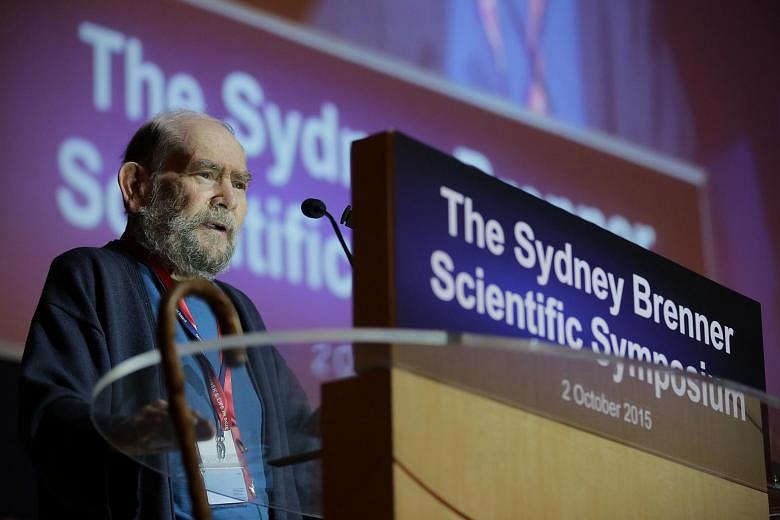SINGAPORE - A Nobel-prize winning scientist who played a key role in helping to set up Singapore's Institute of Molecular and Cell Biology (IMCB) 30 years ago was honoured at an event on Friday (Oct 2).
The South Africa-born Dr Sydney Brenner, who is 88 this year, won the Nobel Prize in physiology or medicine in 2002 for his work on the C. elegans worm, which is now used as a model organism for biomedical research.
At the opening of the Sydney Brenner Scientific Symposium and Exhibition on Friday, Deputy Prime Minister Teo Chee Hean unveiled a glass C. elegans worm sculpture in honour of Dr Brenner's contributions.
In a speech at the event, Mr Lim Chuan Poh, chairman of the Agency of Science, Technology and Research (A*Star), said Dr Brenner, now a senior fellow at A*Star, saw the potential to build a biotechnology industry even though Singapore's economy was built around manufacturing in 1983.
"There must have been some leap of faith and incredible vision... Singapore, at that time, did not even have a single research institute," said Mr Lim.
Things have since changed.
By the end of the year, One-North, a 200ha site which houses the Fusionpolis and Biopolis, will have a working population of more than 16,000 from both the public and private sectors, making it "one of the highest concentrations of scientific brain power anywhere in the world", said Mr Lim.
Biopolis, for instance, is home to pharmaceutical, healthcare and medical technology giants such as GSK, Novartis and Procter & Gamble.
At Friday's event, Dr Brenner told an audience of close to 400 scientists from the local and international community one reason he liked science was that he could learn to become an "amateur in many subjects".
"I've learnt one useful thing in life: If you can read, you can learn anything. And therefore, I have become what I think is the most useful in science which is not to become a professional but a talented amateur," he said.
The event was jointly organised by A*Star, Nanyang Technological University, National University of Singapore and American non-profit research institution, Cold Spring Harbor Laboratory.


